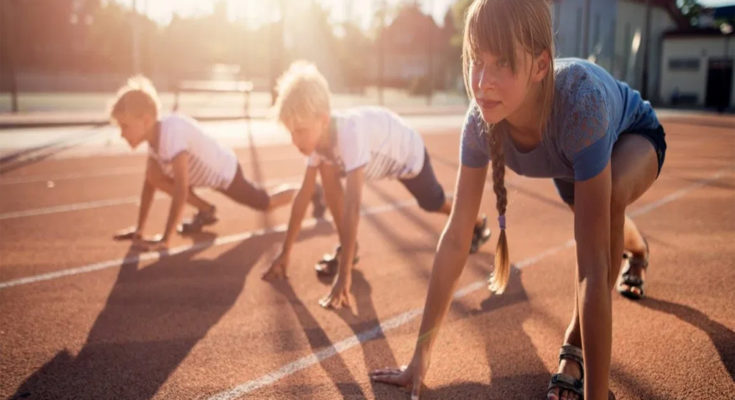Obesity among children in the United States has tripled within the last two decades. Obesity causes social problems for children and often brings about diabetes, coronary disease, and musculoskeletal problems in adulthood. Preschool fitness is a sure way to help prevent childhood obesity and improve children’s health.
By age three, most children can go up and downstairs by alternating their feet, throw overhand, and start place. Most four-year-olds can catch a bounced ball, pedal a tricycle, and jump using a running start. By five, most children can skip, leading with one foot; roll like a log, and pump their legs over a swing.
Physical education activities like running and playing tag help children stay toned. Family activities like walking, sledding, and biking help children enjoy exercise.
Parents can take other learning to make sure their preschoolers learn about and employ fitness activities:
Active Free Play
Give children a minimum of 60 minutes each day for active free play. Let them run, climb, throw, dig, jump, and pedal until they may be tired. Riding toys, balls, and swingsets will help them stay active. Toys must be age-appropriate, for instance, a fat bat and whiffle ball rather than a hardwood bat and ball.
Structured Physical Exercise
Plan at least one hour of structured physical exercise daily. Teach children dance and game-playing skills. Enroll them in yoga classes for tots, swimming classes, or gymnastics classes. Classes should give attention to having a great time and building skills, not on winning or losing. (Organized sports are better suited to teens.)
Gross and Fine Motor Skills
Children learn both gross and fine motor skills at preschool age. They need help finding out how to coordinate their movements. Parents may help by encouraging them and providing constructive feedback.
TV and Computer Use
Strictly limit TV and computer use. Experts say preschool children shouldn’t sit area or lay down for longer than an hour at the same time, except when they may be sleeping.
Knowledge of Physically Active People
Read books about physically active people, like mountain climbers, hikers, farmers, dancers, and athletes.
Set Suggestions
Parents should set suggestions by looking into making exercise and fitness regular elements of their lives.
Preschool exercises that help build gross motor skills (large muscles) include swimming, marching, hopping, balancing, pulling or pushing wagons, and throwing and catching softballs. Classic kids’ games like Follow the Leader, Red Light/Green Light, and Simon Says also help build gross motor skills, similar to building and messing around with obstacle courses.
To develop fine motor skills (small muscles) preschoolers will take clothes on/off dolls, lace cards, string beads, art projects, play in the sand, or do puppet shows. Fingerplays like Itsy Bitsy Spider can also be best for building fine motor skills.
Youngsters might learn how to use and coordinate their health all on their own, but teachers and parents can help. Preschool fitness activities help children develop skills and habits that they may use throughout their lives to stay healthy, fit, and mentally alert. Besides, it is so much fun to play with children and watch them enjoy each other.





